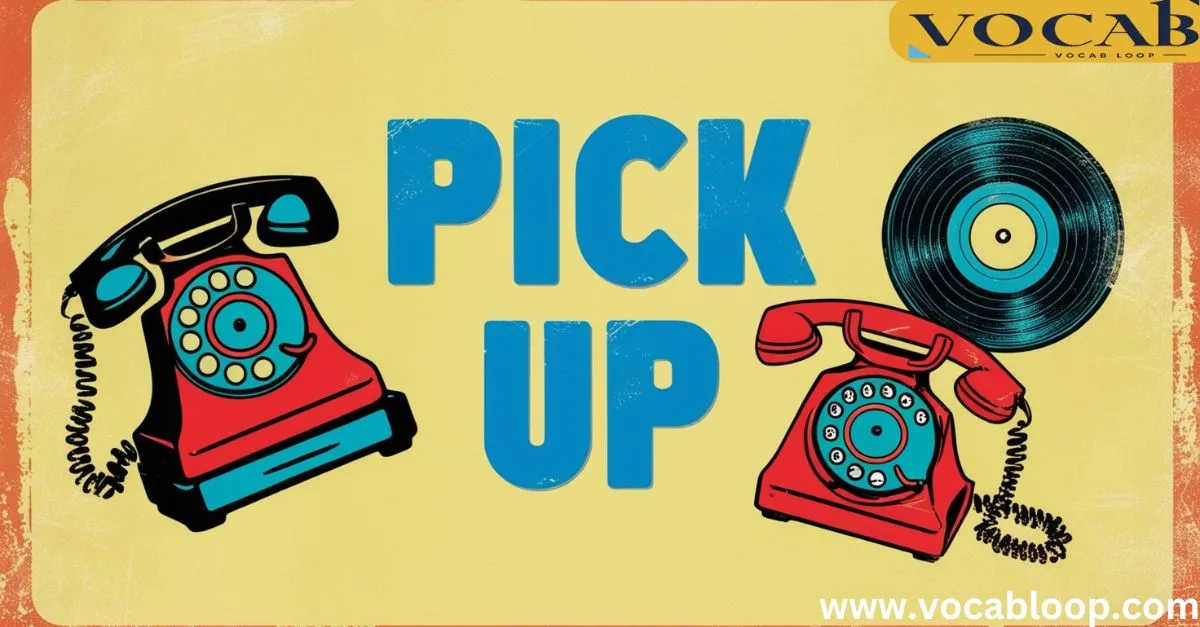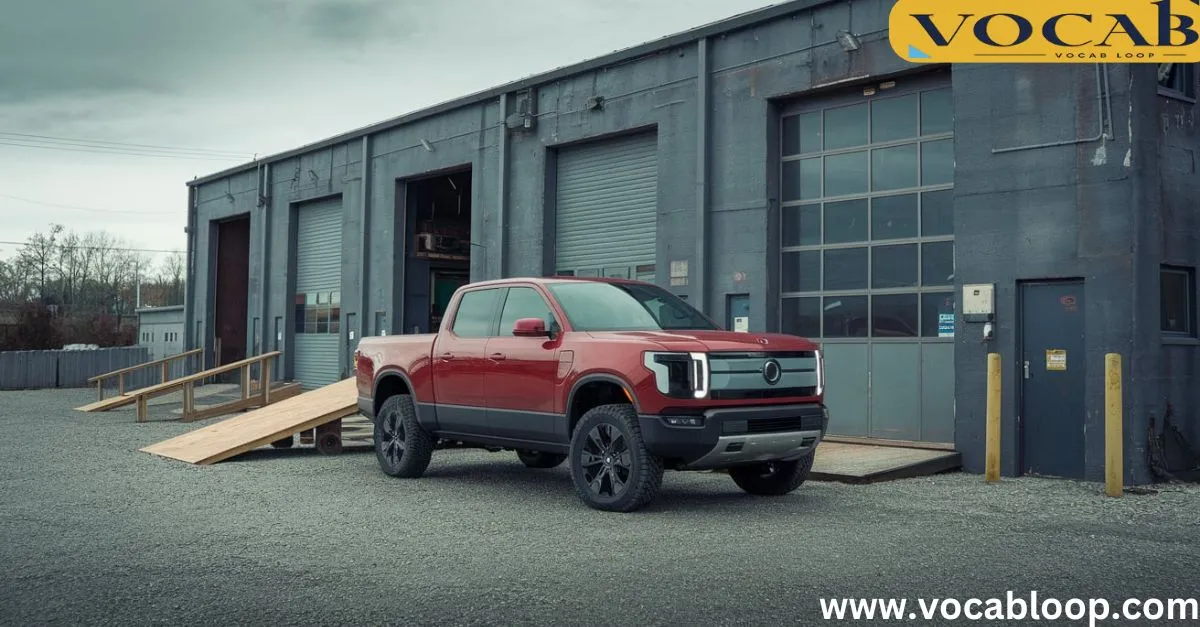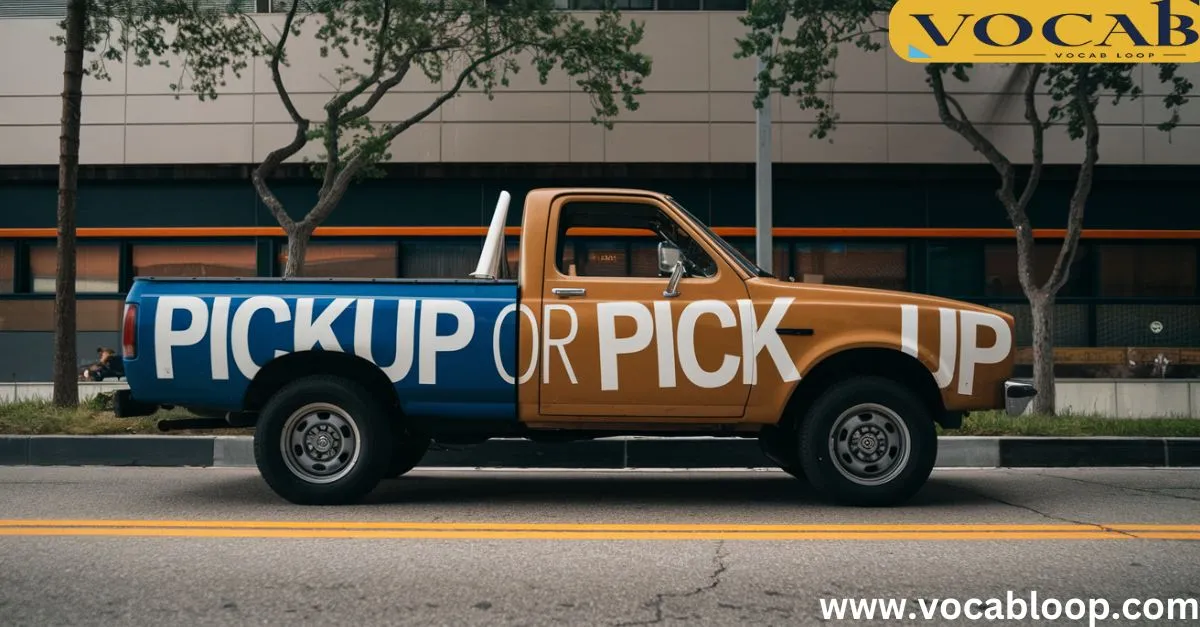Why is There Confusion?
Pickup, pick up, and pick-up may look and sound alike, but they serve different purposes, leading to confusion among speakers and learners. Their meanings often depend on whether they are used as verbs, nouns, or adjectives. This variability can complicate proper usage, particularly in formal writing.
The evolution of the English language contributes to this confusion. Some sources agree on the usage of these terms, while others may highlight differences, particularly between British and American English. In the U.S., pickup and pick up have distinct functions, each with specific meanings in various contexts, such as scheduling a pick-up or discussing a pickup truck.
Is the Pick Up Word Correct?

Definition
Pick up is a phrasal verb that combines the verb “pick” with the preposition “up.” It describes an action where someone or something lifts, gathers, or collects an object, person, or even skill.
This term emphasizes an activity that requires a physical or metaphorical movement, as in “to pick up a book” or “to pick up a new skill.”
Meaning
The phrase pick up is used widely in different contexts. As an action verb phrase, it might describe physically lifting an item, such as picking up groceries or gathering flowers. But it can also mean to retrieve or acquire something less tangible, like knowledge.
Pick up can even mean to increase in speed or improve something, such as “The wind is picking up.” The phrase has flexibility in both formal and informal English, making it a common choice in everyday language.
Is the Pickup Word Correct?

Definition
Pickup as one word is primarily a noun or adjective in American English. This form refers to a type of vehicle, such as a pickup truck, which is known for its cargo-carrying ability. It also has a broader meaning, indicating a collection or gathering of something.
Meaning
Pickup is frequently used when discussing scheduled events where someone retrieves or acquires something or someone, like a scheduled pick-up for laundry or goods. As an adjective, pickup describes certain games or activities that are casual, such as a “pickup game of basketball.”
It’s also used in contexts of business or logistics, like “pickup orders.” In essence, pickup as a single word has its place in describing both specific types of vehicles and actions that involve gathering or retrieval.
Is the Pick-Up Word Correct?

Definition
The hyphenated form pick-up is less common in American English but appears occasionally, especially in British English.
It’s often used as a noun or adjective, though it’s becoming less frequent. Pick-up may still appear in old publications or as a stylistic choice.
Meaning
In instances where it does appear, pick-up often means the same as “pickup,” referring to a retrieval action, or as an adjective for informal events.
It’s important to note that this usage is fading in American English, but the form may still appear in compound phrases. Understanding this helps clarify why Americans might see “pick-up” but use it less often.
Verb Form
When used as a verb, pick up describes actions involving gathering or increasing. Whether you’re talking about retrieving a friend, acquiring new skills, or gathering items from a location, this phrase is flexible.
For example, you might say, “I need to pick up some supplies.” Here, pick up clearly communicates a collection or retrieval action. It’s commonly seen in informal requests, such as “Can you pick up the kids from school?” The phrase’s adaptability as a verb makes it a frequent choice in conversational English.
Noun/Adjective Form
Pickup functions as both a noun and adjective, setting it apart from “pick up.” As a noun, pickup can refer to a retrieval event, such as a pickup at the airport.
It’s also widely recognized in its adjective form, describing things like “pickup games” or “pickup trucks.” A pickup truck is a vehicle specifically designed for transport or cargo.
In the adjective role, pickup can modify informal events or describe actions related to collection or gathering, such as “a pickup basketball game.”
Pick up as Past and Future Tense Use
In terms of tense, pick up is conjugated like a regular verb. In the past tense, it becomes “picked up” (e.g., “I picked up the package yesterday”). For future actions, “will pick up” is commonly used, as in “I will pick up groceries tomorrow.”
Both past and future tense use emphasizes the action of gathering, acquiring, or lifting, showing how this phrase operates in multiple scenarios with ease.
Quick Summary: Pickup or Pick Up
| Usage | Form | Example |
| Verb | pick up | “I will pick up dinner.” |
| Noun | pickup | “My pickup is scheduled.” |
| Adjective | pickup | “This is a pickup truck.” |
Pickup or Pick Up: Parts of Speech
Each term serves a unique role in grammar. Pick up acts as a verb, while pickup functions as a noun or adjective. Knowing these distinctions helps to use each term accurately in context.
For instance, you wouldn’t say “I scheduled a pick up truck” when referring to the vehicle; instead, you would say “a pickup truck.”
Pronunciation of Pickup or Pick Up
In American English, pronunciation between pickup and pick up remains fairly similar, though slight emphasis on “up” in “pick up” can signal the verb form. Meanwhile, pickup is generally spoken with a quick flow that reflects its use as a noun or adjective.
Side-by-Side Comparison: Pickup or Pick Up
| Form | Part of Speech | Use Example |
| pickup | Noun/Adjective | “I have a pickup scheduled.” |
| pick up | Verb | “Please pick up the kids.” |
| pick-up | Hyphenated | “Did you confirm the pick-up?” |
Which One is More Acceptable: Pickup, Pick Up, or Pick-Up?
In American English, both pickup and pick up are widely accepted, with pickup preferred for nouns or adjectives, and pick up as the verb form. Although pick-up may appear in British publications, it’s largely avoided in the United States.
Trick to Remember the Difference: Pickup or Pick Up
Remember, if it’s an action verb phrase (to lift or acquire), use “pick up.” For nouns and adjectives (like a truck or gathering event), use “pickup.”
Origins of Pickup, Pick Up, or Pick-Up

Historically, pick up originates as a phrasal verb. Over time, pickup evolved into a noun and adjective, reflecting its role in describing objects or events. The hyphenated pick-up form is largely obsolete in the U.S. today.
Synonyms of Pickup, Pick Up, or Pick-Up
Pickup (Noun)
- Collection
- Retrieval
- Acquisition
- Cargo
- Truck
- Gathering
- Transport
- Delivery
- Loading
- Haul
Pick Up (Verb)
- Fetch
- Acquire
- Lift
- Collect
- Retrieve
- Improve
- Enhance
- Gather
- Increase
- Obtain
Pick-Up (Noun/Adjective)
- Retrieval
- Acquisition
- Drop-off
- Fetching
- Collection
- Gathering
- Recovery
- Transport
- Loading
- Unloading
Everyday Usage Examples

Pickup
- The pickup was scheduled for 3 PM to collect the packages.
- She drove her pickup truck to the hardware store.
- The pickup of the donations will happen every Saturday.
- We need a pickup for the furniture we bought.
- His pickup from the airport was delayed due to traffic.
- They made a pickup of recycling materials this morning.
- The pickup truck is perfect for transporting heavy loads.
- I scheduled a pickup for the delivery of my new sofa.
- The pickup location is at the front entrance of the building.
- After the pickup, we can go to dinner.
Pick Up
- I will pick up some groceries on my way home.
- Can you pick up the kids from school today?
- She decided to pick up painting as a hobby.
- He needs to pick up his dry cleaning this afternoon.
- Let’s pick up the pace during our workout.
- I’m going to pick up the new book from the library.
- Don’t forget to pick up your prescription later.
- They want to pick up where they left off last week.
- If it rains, I will pick up the pace on my walk.
- Please pick up the mess before guests arrive.
Pick-Up
- The pick-up for the ride-sharing service was right outside the airport.
- We had a pick-up game of basketball at the park.
- The pick-up point for the tour is near the hotel.
- I arranged for a pick-up of the parcel from my house.
- He scheduled a pick-up for his car after the repair.
- The pick-up service will handle all your delivery needs.
- We organized a pick-up for the event’s supplies.
- The pick-up truck is ideal for hauling materials.
- She mentioned the pick-up time for our flight.
- They coordinated a pick-up for their luggage after check-out.
FAQs
Can “pick up” be used as a noun?
No, “pick up” serves only as a verb, while “pickup” is the noun form.
Is “pickup” used in British English?
It’s used, but “pick-up” may be more common in some regions.
Does “pickup” refer only to trucks?
No, it can also mean a gathering or collection.
Is “pick up” correct for scheduled events?
“Pickup” is generally preferred for events, like scheduled pick-ups.
Are “pickup” and “pick up” interchangeable?
No, each serves a unique grammatical role.
Conclusion
When to use pickup or pick up can clarify your writing and improve your command of English grammar. For verbs, choose pick up; for nouns and adjectives, select pickup. This simple trick ensures you’re using these terms accurately.
So, next time you’re uncertain, think about the part of speech and context to choose the right form. This distinction enhances both your writing accuracy and your understanding of English grammar.

Alex Hormozi is a seasoned blogger at Vocab Loop, known for his deep insights into language, vocabulary, and grammar. With years of experience in writing, Alex shares practical tips and effective strategies to help readers improve their linguistic skills and enhance their writing abilities.

